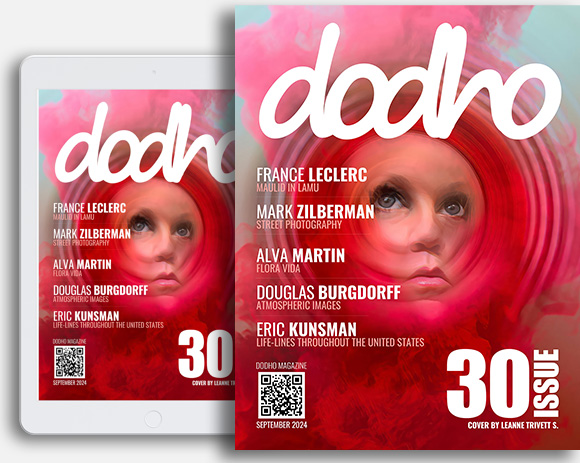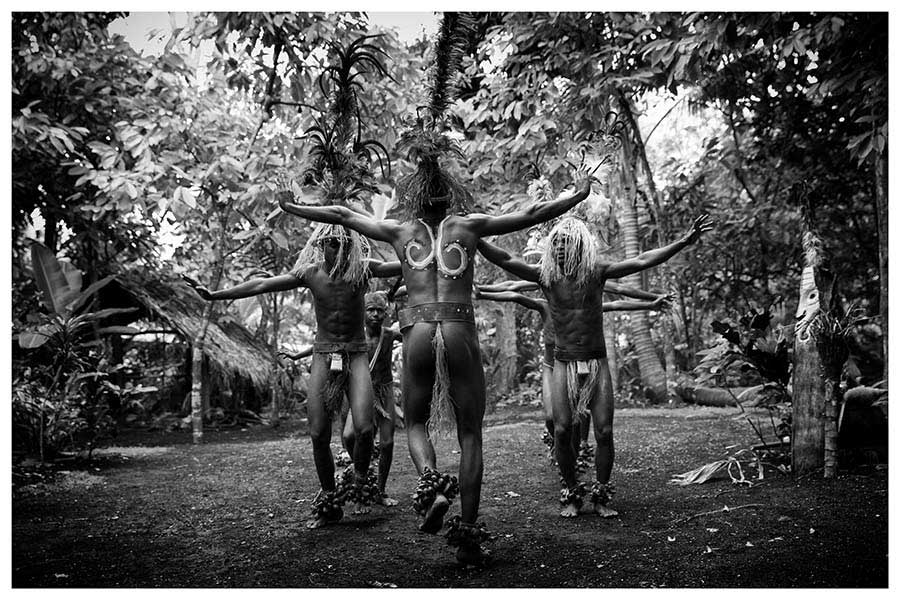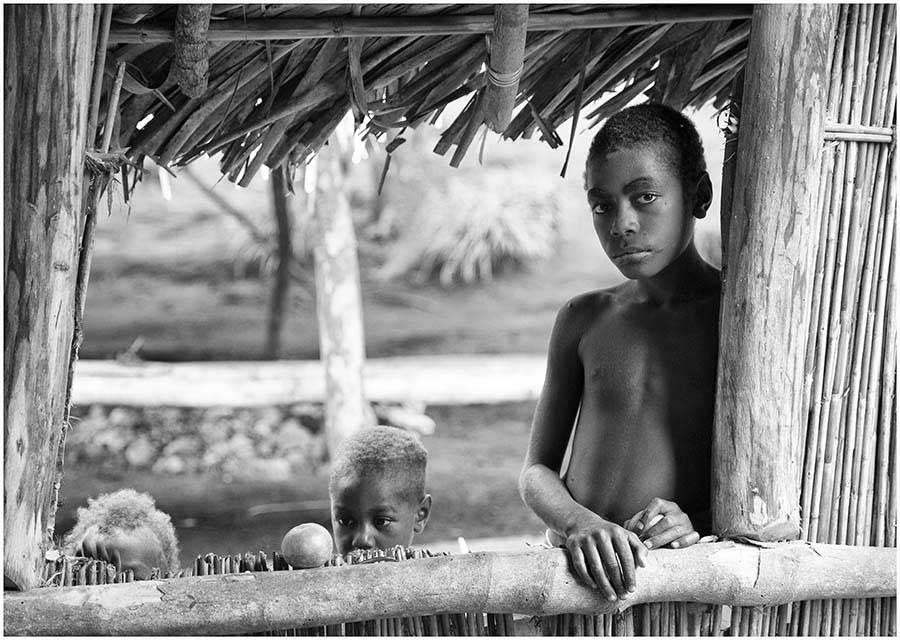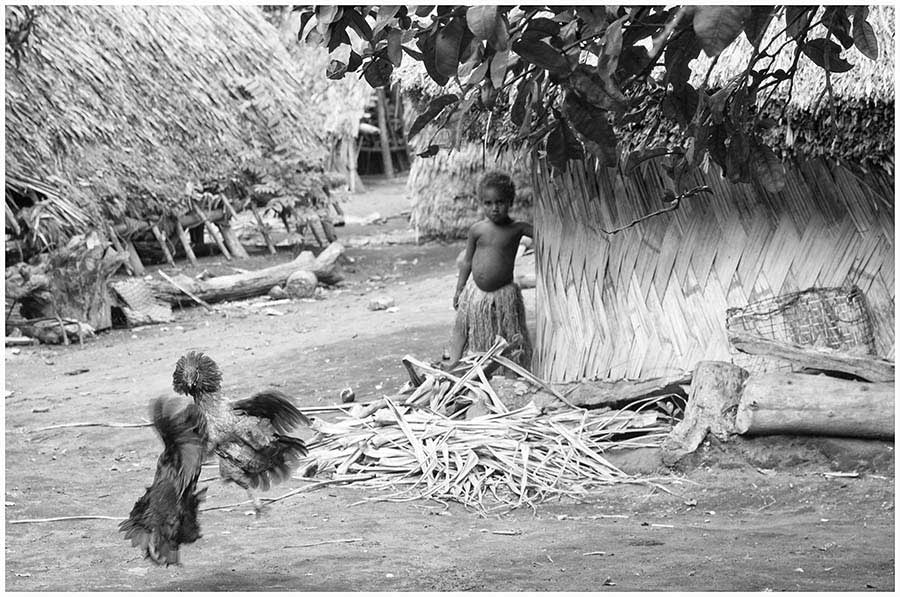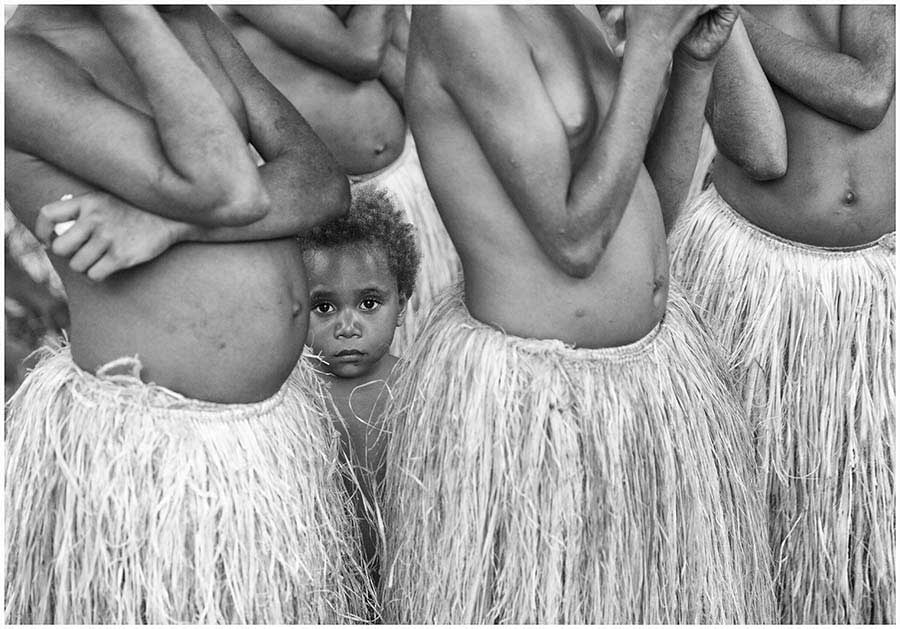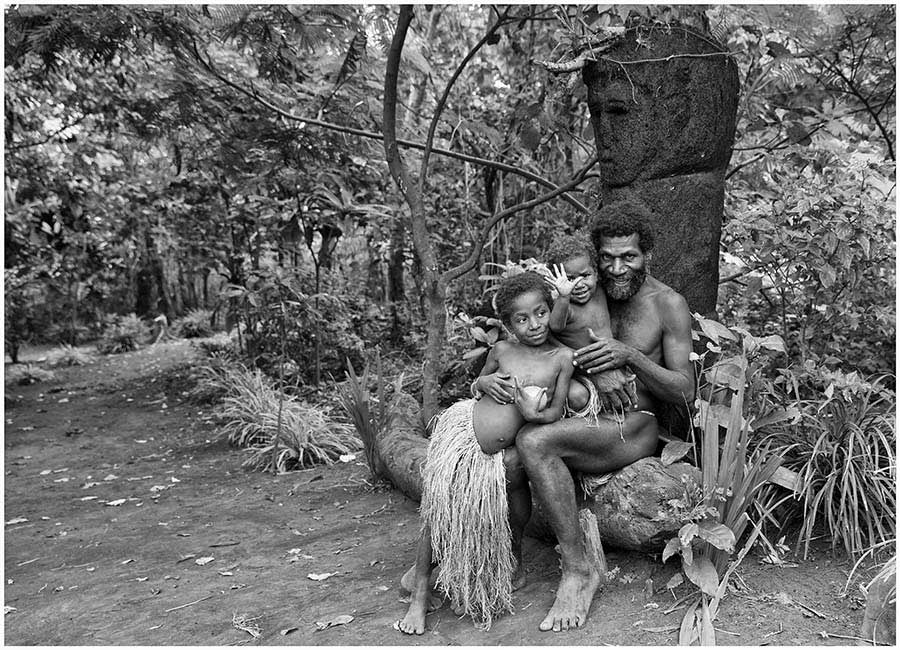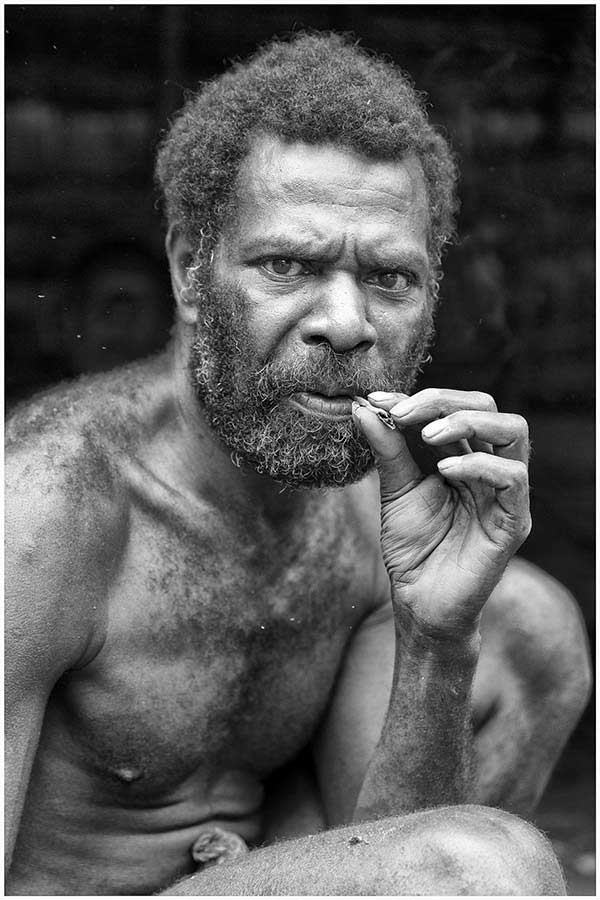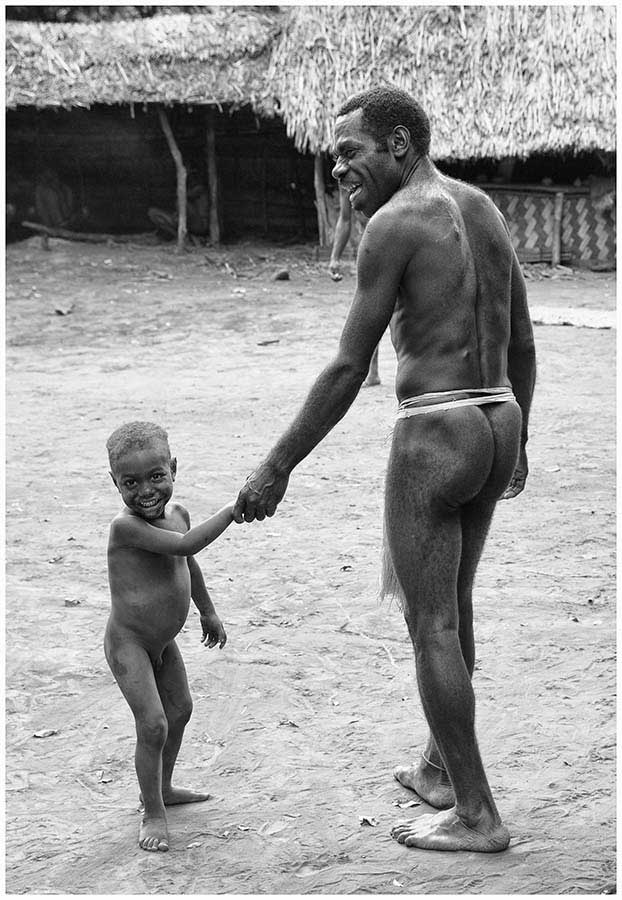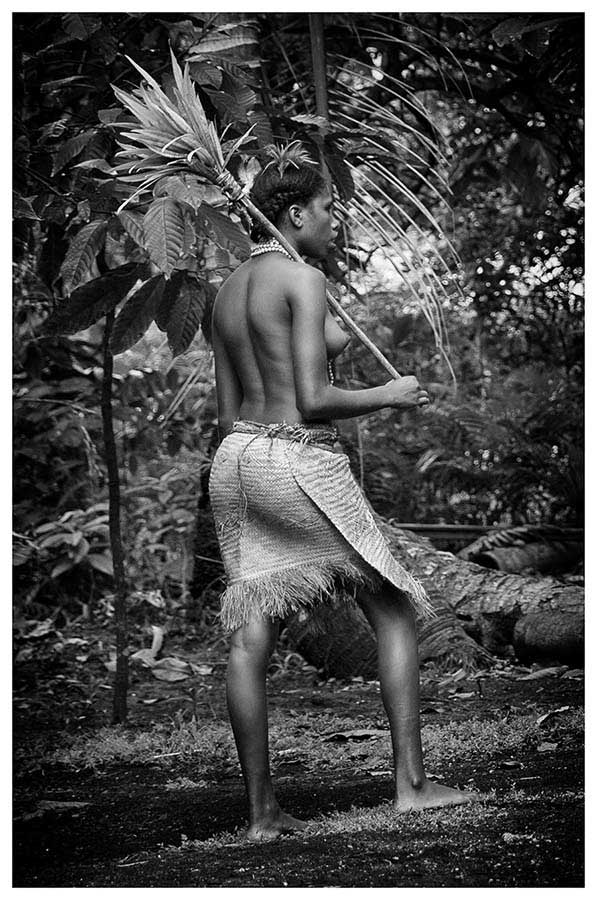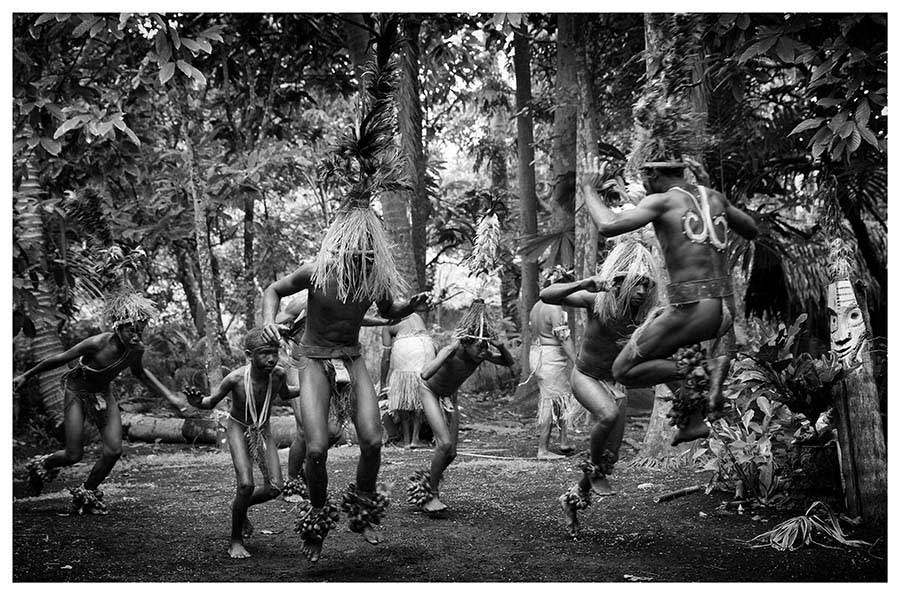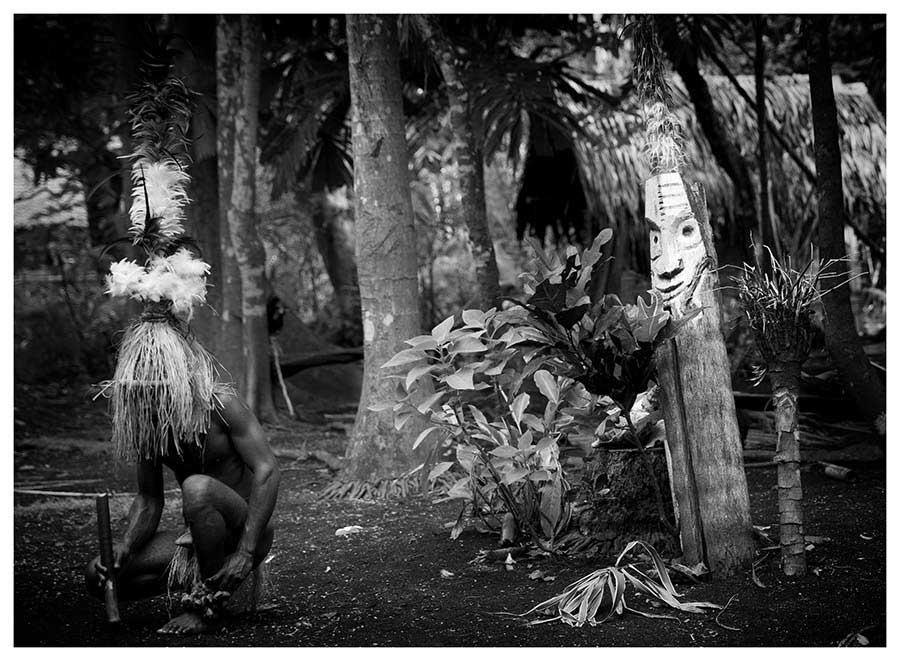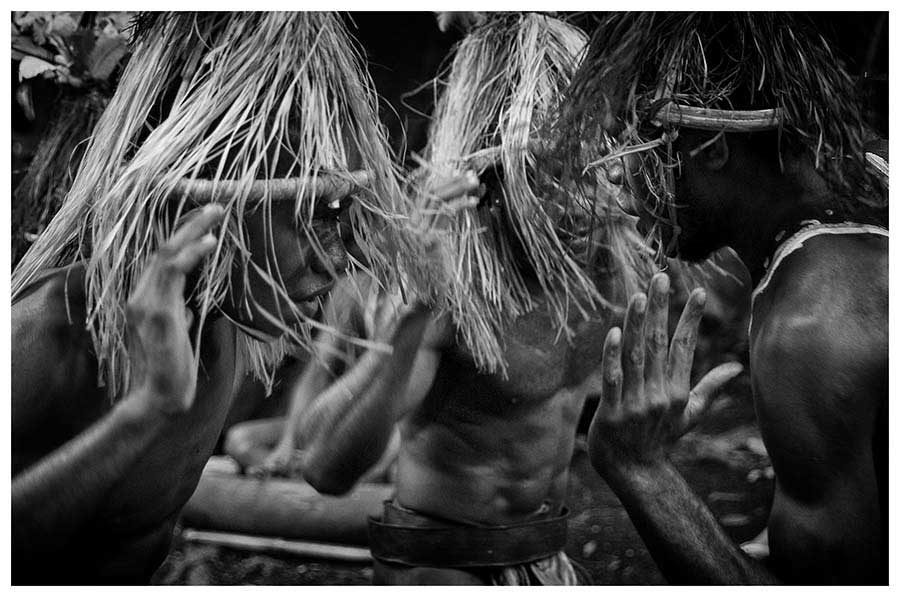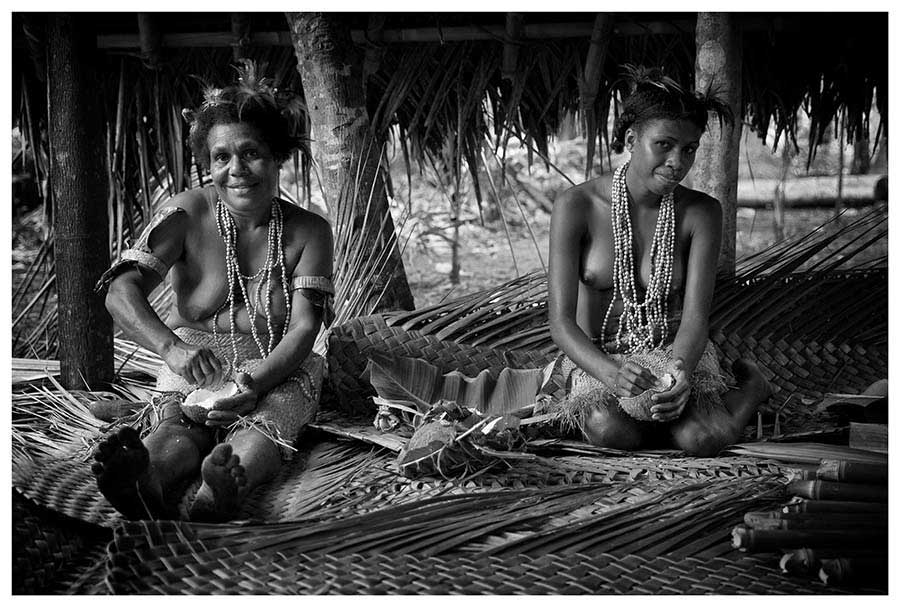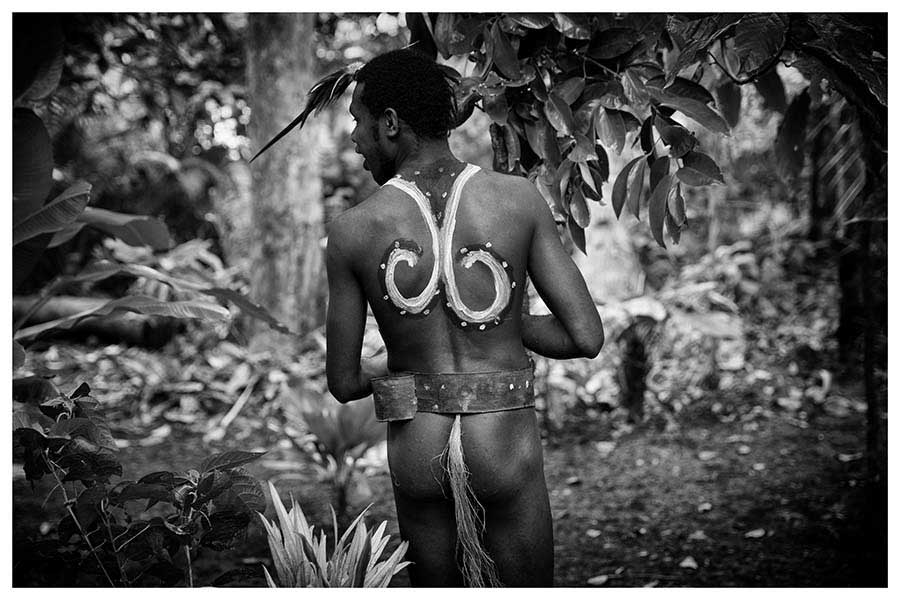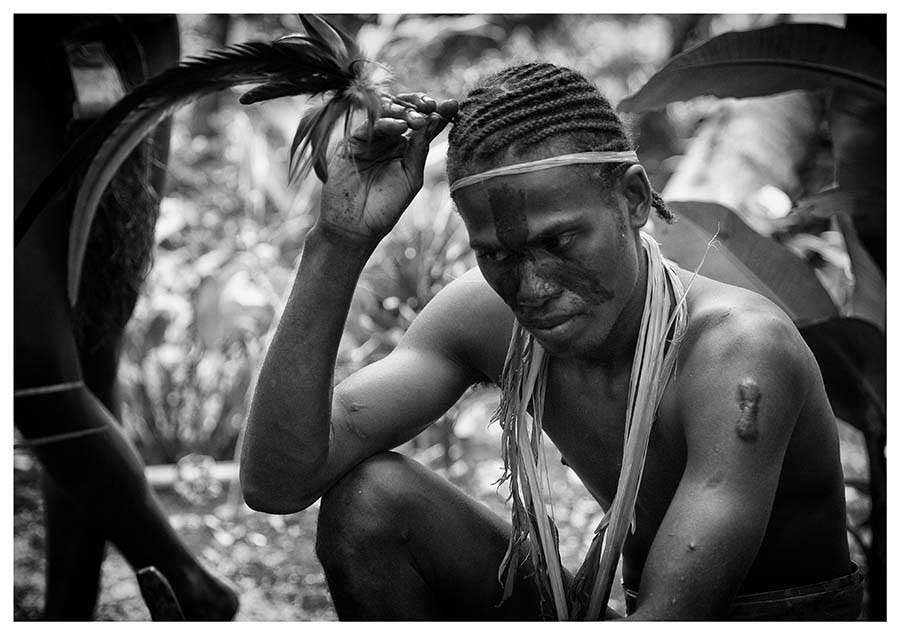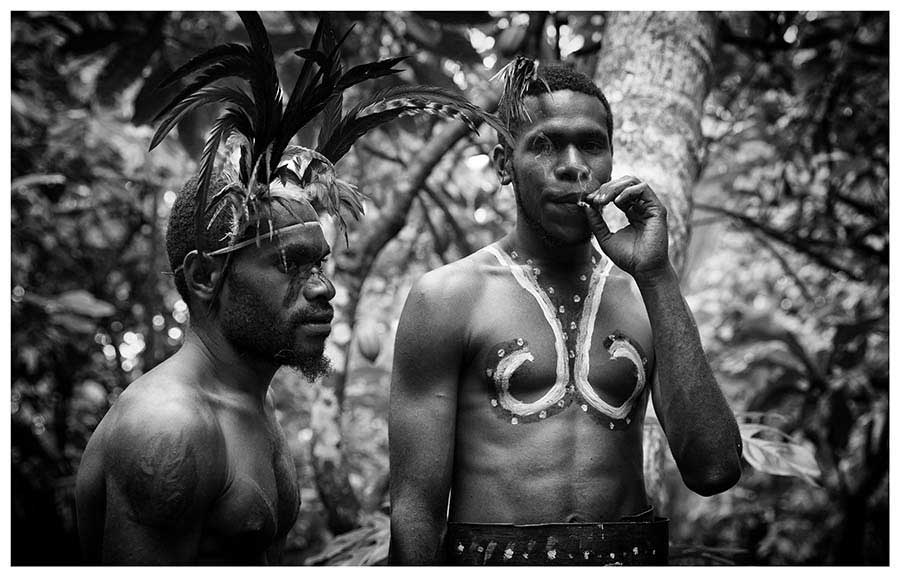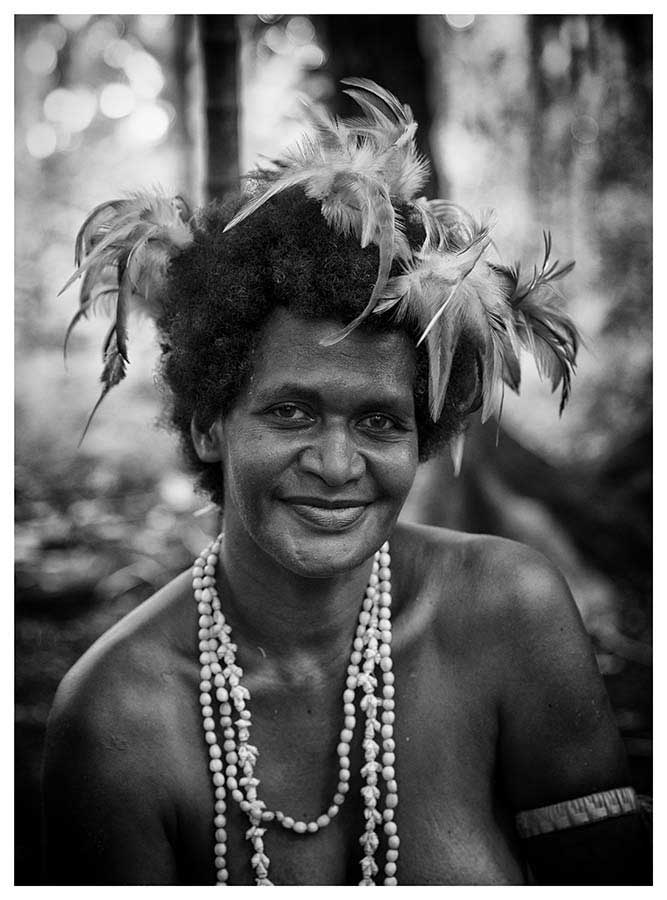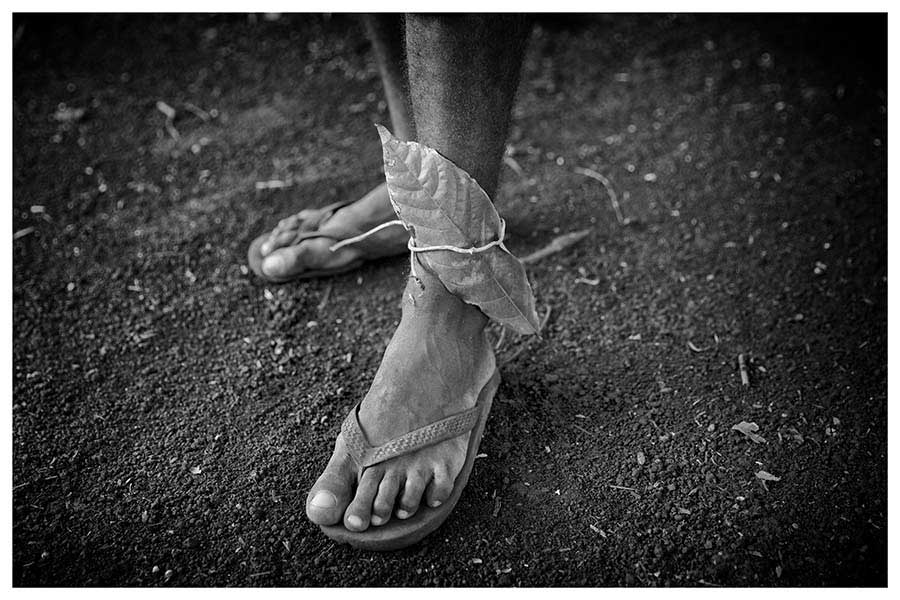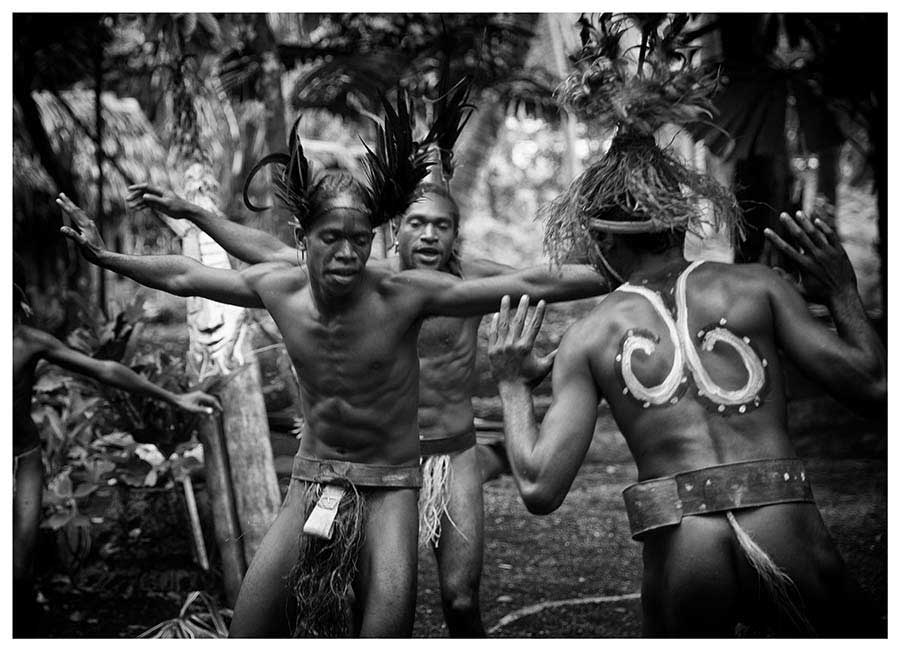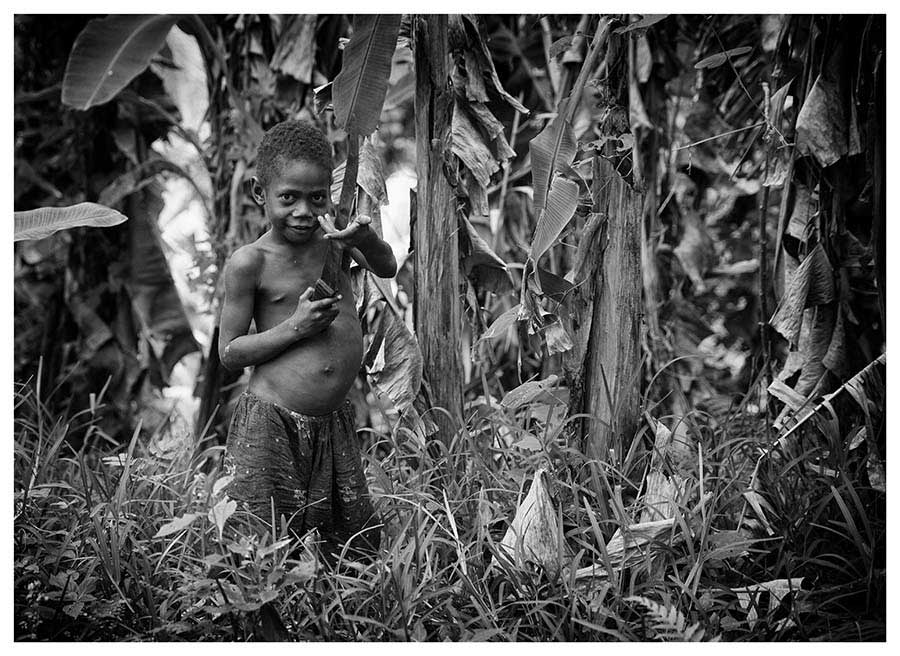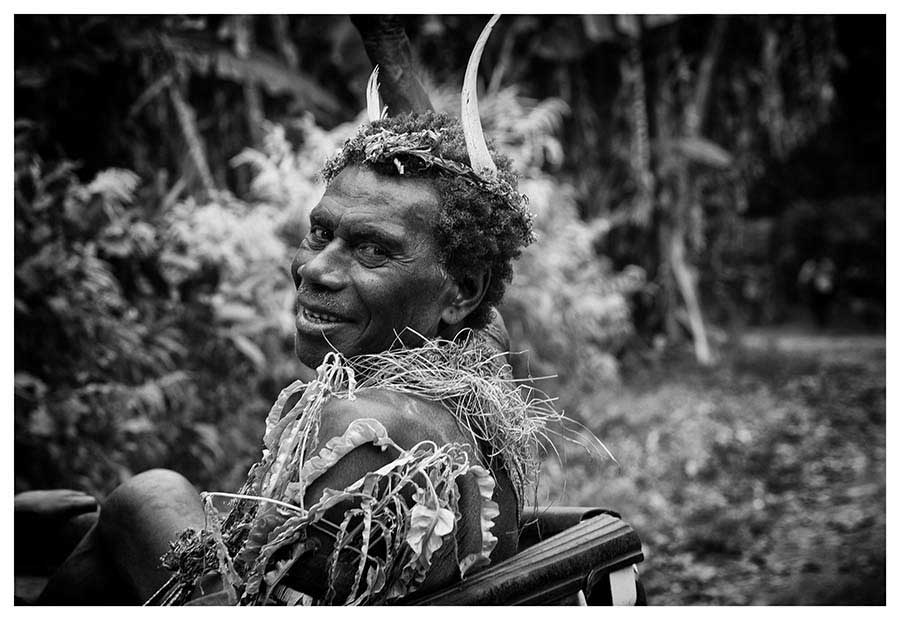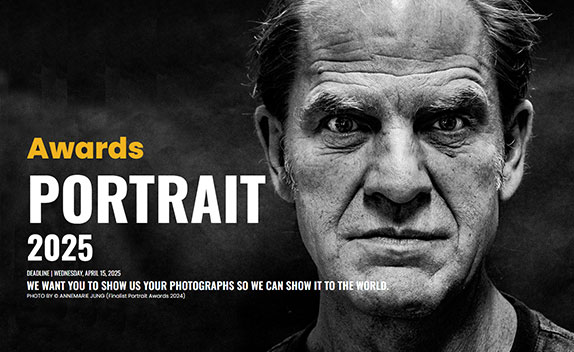The american philosopher and writer, Ralph Waldo Emerson once said: “Happiness is a perfume you cannot pour on others without getting some on yourself.” The secret of happiness is not the pursuit of possession but rather of giving. One who makes others happy, will become happy – that is what french author Andre Gide thought.
In the year 2013 I am the absolute opposite if happy. I found myself struggling with many issues in my life. I was questioning the decisions I had made and the importance of the steps I had to take. I had lost close family members in a short period of time and had to give up the life I chose and became accustomed to.
Overall I had lost the ease to go through life and got drawn towards sadness. In late 2013 I saw a documentary about Vanuatu, a country which I had never heard of before. A country that was voted twice the happiest place on earth according to the Happy Planet Index. From that moment on I knew I wanted to travel to Vanuatu to find out what it is that makes people happy. At that point I did not notice that Vanuatu has landed #1 on the World Risk Index as one of the most dangerous countries, because it gets struck regularly by natural disasters and doesn’t have a proper infrastructure.
In the spring of 2014 I am excited to start my journey to Vanuatu, a small Republic with 83 small islands in the South Pacific. On its 63 inhabited islands you will find at least that many different dialects. The younger generations that were able to go to school also speak English and French. Everywhere I met the natives, I was welcomed with a friendly smile. An honest smile, curious and without second thoughts.
I reflected about my home country and the many others I had traveled. I thought about the people you see, rushing down the streets, lost in thoughts and introverted. Looking down on their cell phones or avoiding direct eye contact. What a contrast to Vanuatu! People approached me like an old friend, not like a stranger.
Jason, a young guy whom I met in Port Vila, knows the reason: “A smile is what connects people. In a country where people speak almost as many dialects as there are islands, a smile is the most important thing. That is what makes us so open and friendly. But if someone doesn’t smile back at you, then run!”
Another indicator for happiness are the custom dances, which are performed mostly in large groups. Men are usually dancing and singing in an inner circle while women and children stomp, whistle and jump in a circle around them. Sometimes the dances last the whole night from sunset to sunrise. It will be fruitless to look for the consequences of negative emotions in the faces of these people. They don’t have wrinkles of sorrow, show signs of stress or desperation that you can see in the faces of our western society.
But why is that? Do they know fear? Yes, they know. But they don’t fear people or animals. Everyone can walk without shoes because there are no poisonous animals. If someone gets hurt, they’ll take herbs from their gardens and domestic remedies. A right concoction sealed with a banana leaf and you are good to go. As most of the indigenous people they are aware of the power of plants and treat nature respectfully. They only seem to fear the force of nature that shows its powers through cyclones or volcanic activities.
What about anger? Is there something that makes people angry? That’s what I asked Gerald from the Check In at Port Vila Airport who struggled to keep the computer running. “No, there is nothing that makes me angry. But it upsets me if the computer doesn’t work and people have to wait.” – And people are patient. Nobody complains about the lethargic computer, nobody hassles him to hurry up.
Maybe the key to happiness is the leisureliness of pace which runs through the veins of the people. Time isn’t a vital part of life. No matter on which island you are, time only plays a secondary role.
Even the honking of the cars doesn’t have anything to do with hurry or warning. It is rather a celebration of greeting and saying hello or yield right of way than a sound of impatience.
On the island of Efate I met Jerome, a young man who had a few wise words to share. For him the only important thing is today, not tomorrow. Tomorrow can wait – until tomorrow that is… “We don’t worry about things we cannot afford. If we cannot afford it, we are happy with what we have.”
What they have and what they posses appears to be little. The people of Vanuatu are one of the poorest in the world, but they seem to have so much more than all of our industrial nations together.
The philosopher Erich Fromm said that happiness is not a gift from the Gods, but the fruit of your inner attitude. In Vanuatu the seed for happiness is being planted in early childhood. On the island of Tanna I got to spend time with the people of the Louinio Village and experienced first hand how not only knowledge is being given down from one generation to another, but also life affirming warmth and love. Growing up in a village surrounded by a large family seems to be the most important thing in life. If you start your life with the helping hands of parents, siblings, grandparents and cousins,it strengthens the collective consciousness for being part of a community. Learning from the elders generates respect for those who cared for you and taught you while growing up.
I considered myself lucky that I got to spend time with these people. I saw all generations living together and treating each other with respect. One of the elder
ones lit up a handmade cigarette and offered me a drag. I gladly took the invitation and he tapped me on the shoulder, signalizing to take his picture while smoking. I still cannot find the words for what I felt when he touched my arm, not saying a anything but having a smile on his face and a glance in his eyes. He liked the picture I took. In that moment I thought to have learned a whole new world from this wise old man. I asked his son, a proud man with 4 children, what it is that makes him happy. “Nothing”, he responded,” I just am”.
At this moment I was just simply happy, too. With each conversation I am caught a spark of happiness. Every day I deeply fell in love with these people all over again. I fell in love because of their lightness of being, their always present smile and their way of life without envy or stress.
If you have nothing and all you can give is help, it is the most rewarding gift. I learned that you can help people in many different ways. If it is picking up someone with your truck or delivering fruits and nuts from one village to another on your way. In Port Vila, Hercius whom I had never met before, asked me at the airport to take
something on my island hopping flight to Malekula. His brother would wait for me at the air field to pick up a TV card so the whole village could watch the upcoming soccer world cup. First I hesitated to take something from a stranger on a flight, but after talking to a flight attendant I agreed. Hercius wanted to pay for the hassle, but I gladly refused his money. The deep trust that a stranger is as honest and reliable as one self really moved me. And the excitement in the brother’s eyes when he saw me with the TV card was overwhelming and rewarding.
Hercius was not the first person I asked about happiness, but the first one who revealed that he was not happy at all. He was sent to Port Vila to work in the city and support his family. It was heartbreaking to hear that he missed his family so much and that life in the city was just so expensive and a heavy burden to carry. “I don’t want to buy coconuts for a lot of money, I want to be able to just climb up the tree and get a coconut in my village,” he told me.
At this point I started to see another side of Vanuatu. A side, where people do have problems just like the rest of us civilized nations. I realized that we are living in the same world although divided by a different way of life with family, custom, nature and society. The problem is not the issue, it is how you approach it. The most valuable lesson I took home with me is that a smile can change your world.
As a third world country Vanuatu struggles with social issues, child education and health care. With the lack of infrastructure it became one of the most dangerous countries in the world to be when a natural disaster hits the country. Did I find the recipe for happiness in Vanuatu? No, but many small flavors and ingredients.
About Christina Czybik
Born and raised in Germany, I am working as a freelance Travel- and Documentary Photographer out of my hometown Hamburg. I gained expert knowledge in photojournalism working as an executive photo editor in Hamburg and Los Angeles.
My travel documentaries have brought me to many destinations outside of Europe and the US such as Fiji, Vanuatu and most recently China, where I was honored with the ‘Humanity Photo Award’ in the category ‘Portrait & Costume’ for my photo series about Vanuatu by the China Folklore Photographic Association and UNESCO. [Official website]


